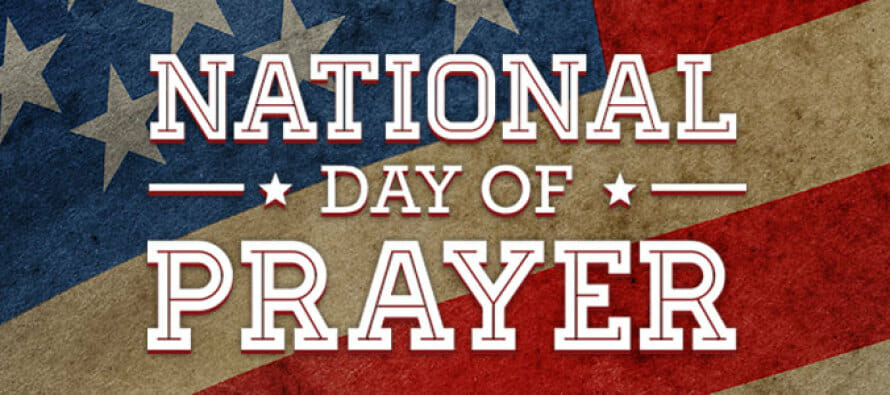
John 11:21-27 Martha then said to Jesus, “Lord, if You had been here, my brother would not have died. 22 Even now I know that whatever You ask of God, God will give You.” 23 Jesus said to her, “Your brother will rise again.” 24 Martha *said to Him, “I know that he will rise again in the resurrection on the last day.” 25 Jesus said to her, “I am the resurrection and the life; he who believes in Me will live even if he dies, 26 and everyone who lives and believes in Me will never die. Do you believe this?” 27 She said to Him, “Yes, Lord; I have believed that You are the Christ, the Son of God, even He who comes into the world.”
Introduction:
How often in life do you and I find ourselves in need of a miracle? Perhaps a provision? Someone’s salvation? A healing? What is it that we need? Not a miracle, but Christ in His glory. The glory of Christ is the truth of His power and Person made known. In this post, we will contend that when the glory of Jesus is understood as our need, all other needs will be more clearly understood or received. We will focus our attention today on Jesus' miracle of the raising of Lazarus. What kind of glories of Jesus are revealed by the miracle of raising Lazarus from the dead? We will first consider this miracle in light of the other "sign miracles" recorded in John's Gospel, and then draw out the various glories of Jesus Christ that issue forth from Jesus' performance of the miracle.
Seeing the miracle of Lazarus brought back to life in the context of John's other signs
Most New Testament scholars divide John's Gospel into two divisions: John 1-12 is called "The Book of Signs" and John 13-21 is termed "The Book of Glory". In brief, we find the following seven signs or miracles recorded in John's Gospel:
1. Water to Wine - John 2:1-11
2. Nobleman's son healed - John 4:46-54
3. Healing at Bethesda - John 5:1-17
4. Feeding of 5,000 - John 6:1-14
5. Walking on water - John 6:15-25
6. Healing of the blind man - John 9:1-41
7. Raising Lazarus - John 11:17-46
All of these "signs" are designed to point us to a particular truth about Jesus Christ - namely, as stated in John 20:31 "but these have been written so that you may believe that Jesus is the Christ, the Son of God; and that believing you may have life in His name." If we had more time and space, we could catalogue how each of these signs demonstrate John's two-fold point: first, of revealing to us how Jesus is the Christ (the "chosen-one" or "anointed one" who came to be man), the Son of God (i.e truly Divine) and then second, by trusting in this Divine and human Savior, we can have eternal life.
Undoubtedly, Martha's confession of Jesus as "the Christ, the Son of God, even He who comes into the world" in John 11:27 together with the response of faith from Jesus' audience in John 11:45 demonstrates how the raising of Lazarus contributes to John's overall case.
The raising of Lazarus represents the final sign recorded in the first part of John's Gospel in chapters 1-12. Jesus' power over life and death culminates what the other six signs have already communicated to us about Jesus. In the water to wine miracle, Jesus introduced Himself as the Mediator of the New Covenant and the Initiator of God's in-breaking kingdom. The raising of the Nobleman's son reveals Jesus' power communicated over a distance. In terms of the lame man at Bethesda, we find Jesus' ability to bring deliverance and healing, a central trait of the Christ or Messiah (see Isaiah 61:1-2; Luke 4:18). The feeding of the 5,000 and walking on water miracles remind us of Jesus' authority over the physical creation. Then the healing of a man with congenital blindness shows how Jesus possesses unprecedented power and authority (no examples exist in the Old Testament of people blind from birth being healed). The bring back of Lazarus from the dead sets the stage for what will be the two focal events of John 13-21 - Christ's cross and resurrection from the dead.
So having surveyed how the raising of Lazarus from the dead fits with the other six signs recorded in John's Gospel, lets consider briefly how Jesus' glory is revealed in that particular miracle.
1. The Glory of Jesus’ Deity.
John 11:17-27
Jesus' claim to be the resurrection and the life is His way of saying that He possesses the power to bring people back from the dead. Old Testament texts repeatedly testify to Yahweh, Jehovah God raising the saints to glory and immortality at the end of history (see Job 14:14; 19:25-26; Psalm 16:8-11; Isaiah 25:6-9; Daniel 12:1-2). Jesus Himself alludes to His inherent power to raise people from the dead (John 5:24-25). With this statement to Martha, Jesus is asserting His glorious Divine power. The glory of Christ's Deity is revealed in this text. All who attach themselves to Jesus have immediate access to all that is the hidden and revealed treasures of God revealed in the Person of the Son, sharing in co-equality with the Father and the Spirit.
2. The Glory of Jesus’ Humanity. John 11:28-37
John not only is arguing quite forcefully for Jesus' deity, but equally so for His true humanity. We switch from an exalted view of the Divine Christ to the true humanity of a very human Jesus. As man, Jesus had to travel (John 11:30); had feet (11:32); had a human spirit (11:33); wept (11:35) and of course is identified clearly as a man (11:37). Why is this so glorious? The Son of God can empathize. Passages throughout the New Testament such as Philippians 2:5-11; Hebrews 2:13; 4:12-16; 7:24-25 and others praise the Son as man, as God incarnate. The Son's incarnation results in Him being just as glorious in His humanity as He has been eternally with respect to His deity.
3. The Glory of Jesus’ Power. John 11:38-46
The power over death lies in the hands of God alone. Certainly we see instances of people resuscitating or bring other people back to life by God's power (see 1 Kings 17:17-24; 2 Kings 4:32-36; 2 Kings 13:20-21; Acts 9:36-43). However, only Jesus brings people back to life with unprecedented Divine authority, declaring His certainty of the person coming back to life as if it is an already done deal (see Luke 8:49-56; John 11:38-46). Jesus didn't just resuscitate others from death to life by the power of God, He did so with His power as God incarnate (as well as in conjunction with the Holy Spirit Who empowered Him in His humanity as Messiah). Just as God alone could make dead bones come to life, take on skin and flesh and become a mighty marching army and nation in Ezekiel 37-39; so only Jesus can re-animate what was dead. Jesus alone can do this physically and of course spiritually in the miracle of the new birth.
4. The Glory of Jesus’ Cross. John 11:47-57
The raising of Lazarus from the dead seemed to be the catalyst that broke the proverbial camel's back for the Jewish leaders. When we look into John 12, we find the Jews not only plotting to kill Jesus, but also Lazarus. This miracle provided the context in which the high priest Caiaphus would prophesy the substitutionary work of one man dying for the people (John 11:49). Lest the glory of the cross be included in our reckoning of how we behold Jesus' glory in the New Testament, we are then no longer speaking of the Jesus' of the New Testament. We need more than a miracle, we need Him. On then in Jesus Christ can we have clarity on either what we truly need or receive from His hand what He deems necessary for us.






